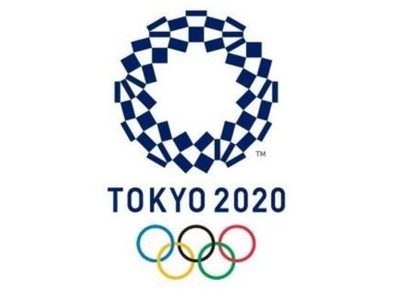Tokyo’s Pandemic Games Open

All Global Research articles can be read in 51 languages by activating the “Translate Website” drop down menu on the top banner of our home page (Desktop version).
Visit and follow us on Instagram at @crg_globalresearch.
***
.
The auguries are not good for the Tokyo Olympic Games. Resignations have filled the ledger, including Japanese composer Keigo Oyamada, organising committee president Yoshiro Mori and the creative director Hiroshi Sasaki. Then there is the lamentable behaviour of the authoritarian International Olympic Committee and the obsequious conduct of the Suga government. The continued prospect of COVID-19 infections in the Olympic camp and public, have all been marked off as manageable.
It will not matter that athletes suffer infections. It will not matter that they will be spread. It will be irrelevant that the Japanese public do not want these games. The IOC will throw money and a range of threats to make sure that officials comply. Some of this was on show with the curt remarks by IOC official John Coates to an Australian state premier, Queensland’s Annastacia Palaszczuk, who was visiting Tokyo to receive news that the city of Brisbane had been awarded the 2032 Olympic Games.
As Australian Olympic President, Coates wished to impress upon the Queensland Premier that she had to attend the opening ceremony in Tokyo and learn the ropes. “You are going to the opening ceremony,” he berated Palaszczuk. “I’m still the deputy chair of the candidature leadership group and so far as I understand, there will be an opening and closing ceremony in 2032 and all of you are going to get along there and understand the traditional parts of that, what’s involved in an opening ceremony.” Gruffly, he issued an instruction. “So none of you are staying behind and hiding in your rooms, alright?”
While much hot air has been made about Coates, this vulgar episode served to show that the IOC is a body that dictates rather than advises. The dictatorial behaviour by Coates may well have been unintended, but was symbolically potent. Used to years of giving directions, he slipped into his comfortable norm of chastisement. The direction to an elected politician superbly captured the problems associated with an organisation that has done its best to warrant abolition.
To justify Tokyo 2020, the IOC has opted for a specially minted rhetoric that focuses on the human spirit and global solidarity in times of crisis, ignoring its own bullying and money hungry ways. Think of the athletes and their challenges, the body tells us, a celebration that supposedly signals a halt to hostilities of countries as their sporting folk participate. Forget the ballooning costs and resources that fall into ruin after the tournament.
This has been the special approach of IOC president Thomas Bach, who misspoke by calling the Japanese “Chinese people”. He stated on July 15, with an almost contemptuous air, that there was “zero” risk of athletes passing on the virus to residents of the Olympic village or to the Japanese populace in general. The Mainichi newspaper put paid to that assertion, noting how athletes arriving in the country’s airports were doing so in a state of “disarray” with some “coming close to general travellers and fans asking for autographs”. The idea of maintaining hermetic “Olympic bubbles” is already proving spurious.
Bach has become a despot in full form, dominating the IOC even more so than such predecessors as Juan Antonio Samaranch. In this, he keeps good company with Coates, who lectured Japan by insisting that the games go ahead despite the pandemic and continuing state of emergency. All health requirements and prescriptions outlined in the organisation’s health playbooks were sound, and opposition to the staging of the games, he confidently observed, would wane as vaccination rates improved. “I think that there’s a correlation between the numbers who are concerned about their safety with the numbers who have been vaccinated in Japan.”
As it happens, Japan’s vaccination rate continues to be poor, as is the general public impression of the games. Major sponsors such as Fujitsu, Asahi and Panasonic have turned up their nose at the opening ceremony. Toyota has joined them and is refusing to run advertising connected with the games “out of sensitivity to the COVID-19 situation.”
Public health specialists are beside themselves with worry, though a contribution to the New England Journal of Medicine earlier this month could still praise the games as connecting “us at a time of global disconnect.” Despite such enthusiasm, the authors were damning in claiming that the IOC playbooks were “not built on scientifically rigorous risk assessment, and they fail to consider the ways in which exposure occurs, the factors that contribute to exposure, and which participants may be at highest risk.” According to one of the authors, Michael Osterholm, the planning had focused on dealing with respiratory droplets prevention. “The science is now convincingly showing that this is an airborne virus, largely, which means it’s like cigarette smoke, it will float wherever.”
Japan’s officials also find themselves in a bind. Japanese Olympic Committee board member Kaori Yamaguchi was brutally frank in writing that the games had “already lost their meaning and are being held just for the sake of them.” The organisers had “been cornered into a situation where we cannot even stop now. We are damned if we do, and damned if we don’t.” The opportunity to cancel had passed. This mad, costly pandemic experiment is upon us.
***
Dr. Binoy Kampmark was a Commonwealth Scholar at Selwyn College, Cambridge. He lectures at RMIT University, Melbourne. Email: [email protected]
He is a frequent contributor to Global Research

